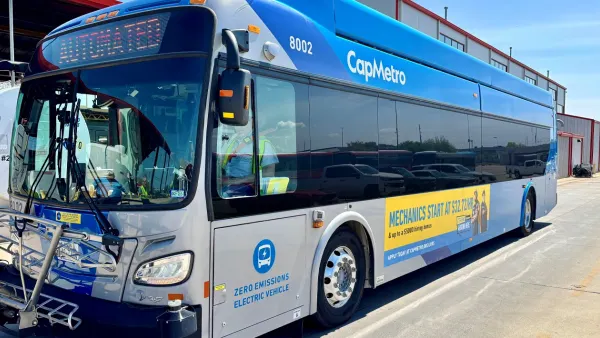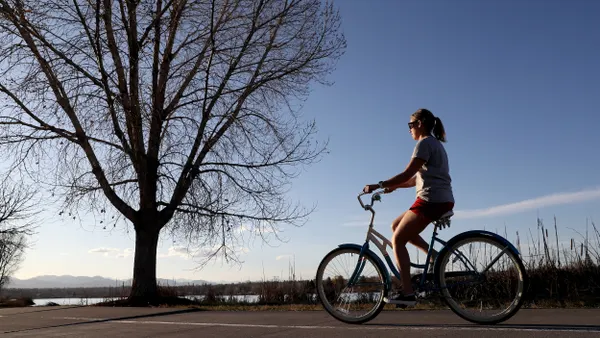UPDATED, August 7, 2019: Autonomous vehicle (AV) company Optimus Ride launched its driverless shuttle service in New York's Brooklyn Navy Yard on Tuesday, marking the state's first self-driving vehicle program.
The free service, which includes six autonomous shuttles, will run seven days a week to transport passengers between the NYC Ferry stop at Dock 72 and the Cumberland Gate. The service is expected to accommodate 16,000 passengers a month.
Optimus Ride also has agreements to deploy in three other cities: Reston, VA; Fairfield, CA and Boston.
Dive Brief:
- Autonomous vehicle (AV) technology company Optimus Ride announced it will launch two self-driving shuttle services, one at the Brooklyn Navy Yard in New York and one in a private residential community in Fairfield, CA.
- The shuttles will stay within geofenced areas on private roads at the Navy Yard and in the gated Paradise Valley Estates senior living community in Fairfield. The Brooklyn shuttle will be on a loop connecting NYC Ferry passengers to Flushing Avenue, which extends outside the Navy Yard's perimeter. The Paradise Valley Estates shuttle initially will provide community tours for prospective residents, and residents will be able to use the service on demand to travel within the community.
- AV shuttle service at both locations is expected to launch in the second quarter this year. Optimus Ride has not yet disclosed how many or what types of vehicles it will deploy.
Dive Insight:
Earlier this year Optimus Ride launched a similar autonomous shuttle service in Reston, VA, a Washington, DC suburb. In 2017, it announced it would bring the vehicles to Union Point, a planned community near Boston.
The company says its vehicles are "programmed to adhere to Vision Zero speeds," meaning 25 mph or less. Operating a shuttle service at slow speeds in a controlled environment is one way a number of businesses are entering the AV space. Similar services have arisen in Detroit, Ann Arbor, MI and Orlando, FL. Only a handful of AV shuttles have taken to public roads so far, with Las Vegas leading the way in fall 2017 and Austin, TX following suit several months later.
Performing controlled AV testing close to or within urban areas is a lower safety risk than allowing them on public roads with a lot of obstacles. It gives AV technology businesses a chance to work out any issues in a safer, slower environment. Plus, the controlled nature gives people in the community a greater chance at witnessing successful AV operations, which over time can build trust.
Public trust is a crucial element to widespread AV adoption, but thus far it has been lacking in the United States. Just this month AAA released survey results indicating 71% of respondents would be afraid to ride in an AV. That's slightly lower than the 73% from the same time last year, but a very high percentage nonetheless. However, that same survey showed that respondents are more comfortable with AVs in low-speed applications — 53% of respondents supported that idea.











